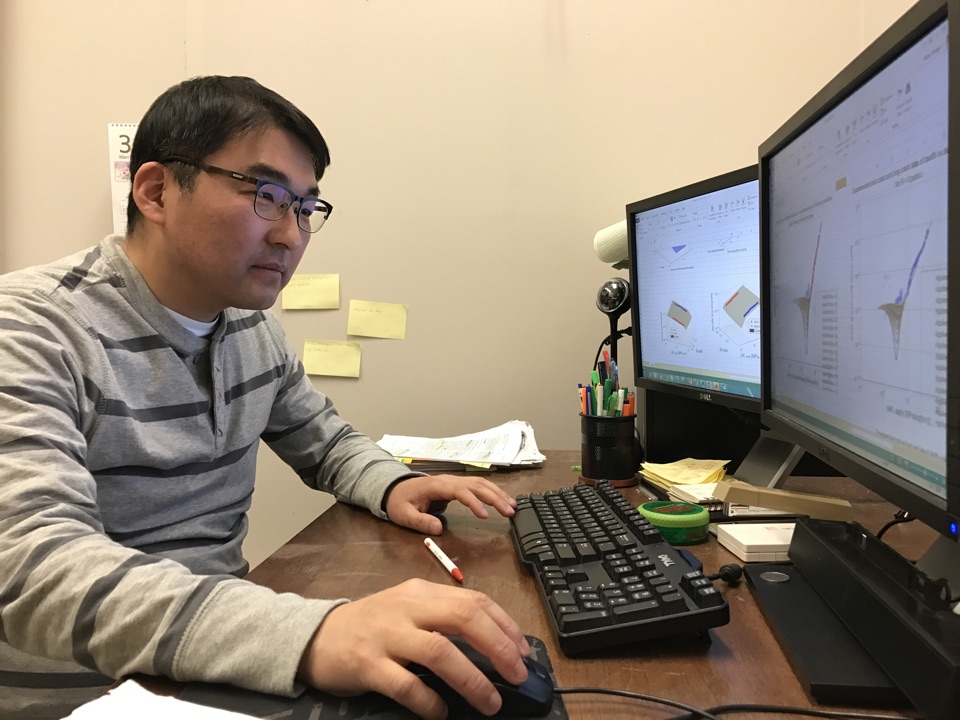
Dongjun Bang, a postdoctoral research assistant in the School of Engineering Technology, wants to advance the world’s understanding of the mechanics of fractures.
Mechanical engineering theory includes solid mechanics, the study of the physics of solid materials. It also includes fracture mechanics, the study of the propagation of cracks in materials. At the intersection of those theories is a relatively new field of study called peridynamics, which focuses on predicting and measuring the formation and behavior of deformations in solid materials, especially fractures.
As a PhD student in mechanical engineering at the University of Arizona, Bang’s research focused on the peridynamic model of solid mechanics. Bang came to Purdue Polytechnic in July 2016 to work with Ayhan Ince, assistant professor of engineering technology, whose research interests include fatigue and fracture, spectral fatigue analysis, and high cycle fatigue of lightweight materials.
Bang’s postdoctoral research focuses on the UniGrow model.
“UniGrow is a method for analyzing the growth of fatigue cracks in materials, especially materials which fail under high cycle fatigue,” Bang explained. High cycle fatigue, or HCF, is the deformation of a material after a high number of uses, even when each use cycle subjects the material only to low stress.
“So far, UniGrow is the only model which can predict the mechanical crack behavior of long fatigue cracks in the regions of elastic and elastic-plastic deformations,” Bang said. “We have an opportunity to expand the model to include the behavior of short fatigue cracks.”
Using MathWorks’ MATLAB software, a programmable numerical computing environment, Bang began simulating HCF fracture propagation. “I spent about two months writing long crack simulation code,” he said. “I found limitations in applying the UniGrow model to short fatigue cracks, but we are finding ways to work around that.” Bang is currently working to publish his research in a journal.
Bang hopes that improving the UniGrow model will lead to real-world enhancements in products made from materials like aluminum or titanium alloys.
“With existing theory, it’s easier to predict the behavior of long fatigue cracks. But short cracks always happen first, and they are hard to analyze,” Bang said. “Without good analysis of short cracks, we cannot predict accurate behavior of materials in industry.” Better analysis methods could lead to prevention of materials failure in products like airplanes and automobiles, he said.
Bang, who earned undergraduate and master’s degrees in his native South Korea, noted that Purdue has enabled him to continue his experiences studying abroad. “I came to Purdue for the challenge,” he said. “I want to remain in academia, to make this kind of research my life’s work.”
